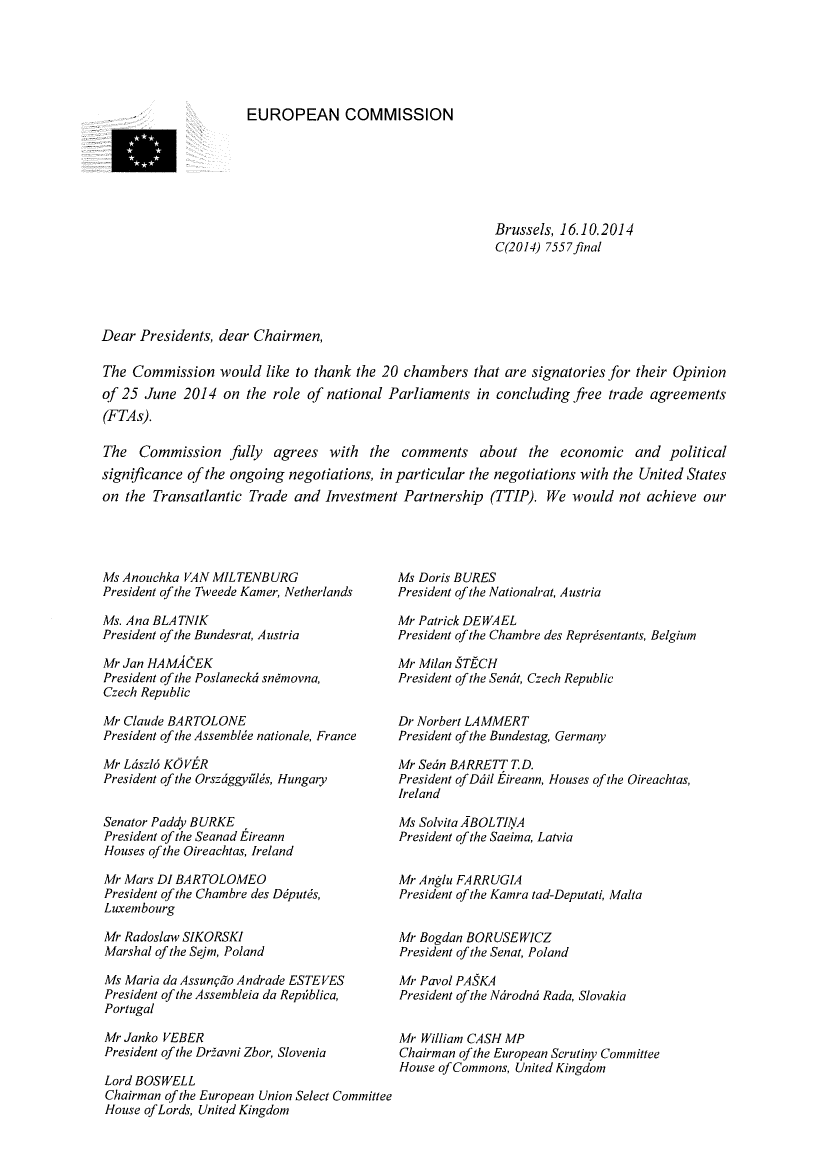
EUROPEAN COMMISSION
Brussels, 16.10.2014
С(2014) 7557final
Dear Presidents, dear Chairmen,
The Commission would like to thank the 20 chambers that are signatories for their Opinion
of 25 June 2014 on the role of national Parliaments in concluding free trade agreements
(FTAs).
The Commission fully agrees with the comments about the economic and political
significance of the ongoing negotiations, in particular the negotiations with the United States
on the Transatlantic Trade and Investment Partnership (TTIP). We would not achieve our
Ms Anouchka VAN MILTENBURG
President of the Tweede Kamer, Netherlands
Ms. Ana BLATNIK
President of the Bundesrat, Austria
Mr Jan HAMÁČEK
President of the Poslanecká sněmovna,
Czech Republic
Mr Claude BARTOLONE
President of the Assemblee nationale, France
Mr László KÖVÉR
President of the Országgyűlés, Hungary
Senator Paddy BURKE
President of the Seanad Eireann
Houses of the Oireachtas, Ireland
Mr Mars DI BARTOLOMEO
President of the Chambre des Députés,
Luxembourg
Mr Radosław SIKORSKI
Marshal of the Sejm, Poland
Ms Maria da Assunção Andrade ESTEVES
President of the Assembleia da República,
Portugal
Mr Janko VEBER
President of the Državni Zbor, Slovenia
Lord BOSWELL
Chairman of the European Union Select Committee
House of Lords, United Kingdom
Ms Doris BURES
President of the Nationalrat, Austria
Mr Patrick DEW A EL
President of the Chambre des Representants, Belgium
Mr Milan ŠTĚCH
President of the Senát, Czech Republic
Dr Norbert LAMMERT
President of the Bundestag, Germany
Mr Seán BARRETT T.D.
President of Dáil Eireann, Houses of the Oireachtas,
Ireland
Ms Solvit a ĀBOLTIŅA
President of the Saeima, Latvia
Mr Anġlu FARRUGIA
President of the Kamra tad-Deputati, Malta
Mr Bogdan BORUSEWICZ
President of the Senat, Poland
Mr Pavol PAŠKA
President of the Národná Rada, Slovakia
Mr William CASH MP
Chairman of the European Scrutiny Committee
House of Commons, United Kingdom